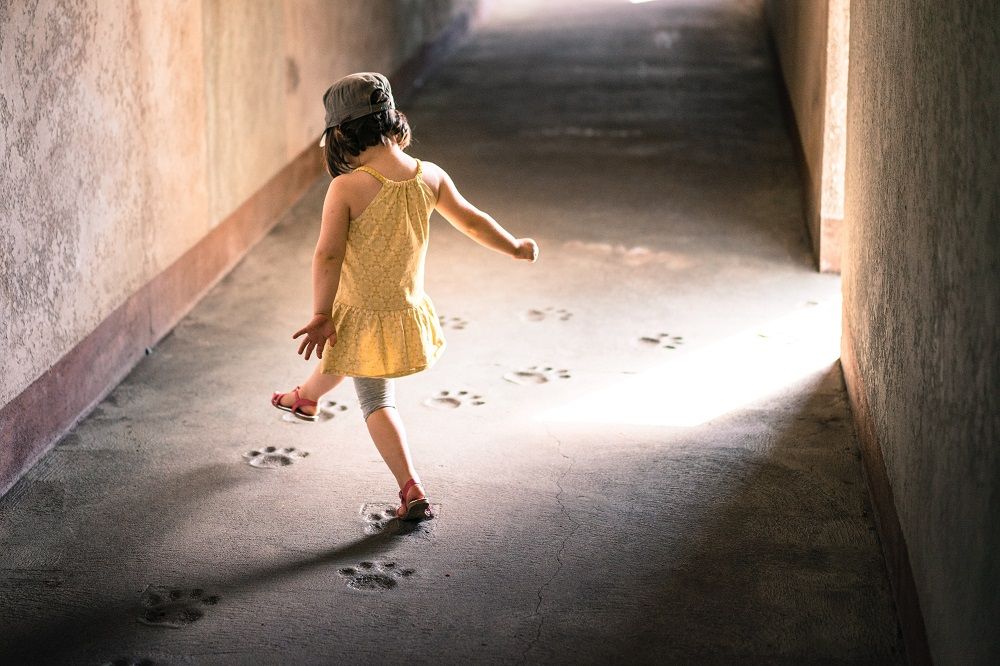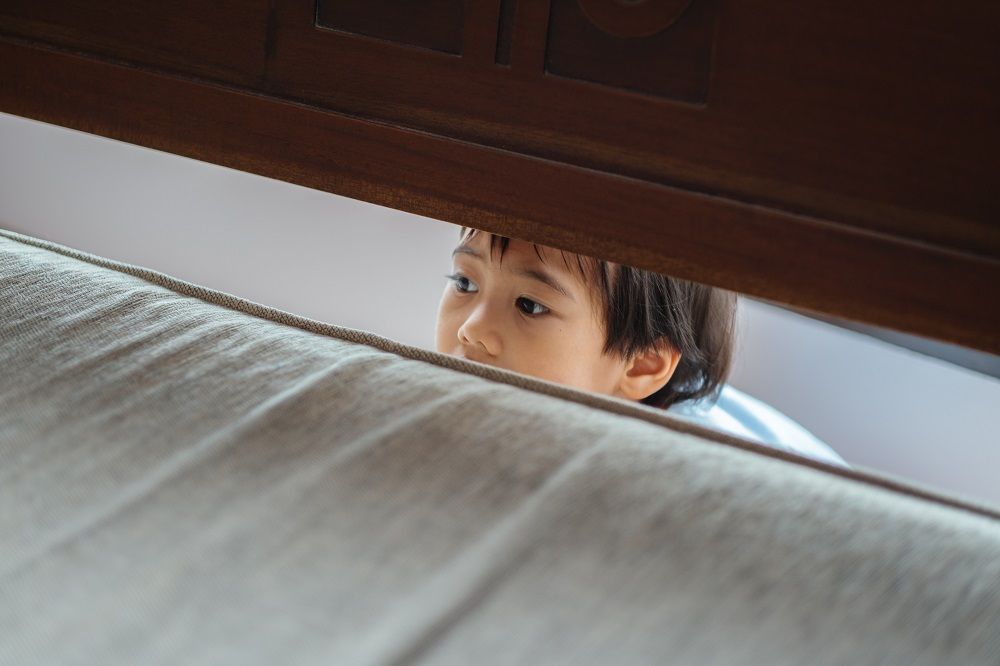How to help a child with ADHD
Key points:
- Kids with ADHD have loads of passion, energy, creativity and curiosity. While they often struggle with focus, impulse control and organization, there are things you can do to help.
- As the parent of a child with ADHD, it’s important to know that it’s a real, treatable condition. ADHD is a neurodevelopmental disorder, not a learning disorder.
- There are simple, everyday practices you can follow to create a safe, supportive environment for your child with ADHD.
Parenting a child with Attention Deficit Hyperactivity Disorder (ADHD) can be especially challenging. There are days when it feels like they never stop talking. Never stop moving. And never pay attention.
ADHD affects millions of kids around the world. But it is not a failure of parenting. There are strategies you can follow to help your child with ADHD cope – and thrive.
How ADHD affects children
ADHD can affect your child’s focus, impulse control and organization:
- Focus: ADHD can make it more difficult for your child to pay attention to someone or something for long periods of time.
- Impulse control: ADHD can cause hyperactivity and impulsivity because of how it affects the ‘executive functions’ of the brain, which have to do with memory and self-regulation. In practical terms, this can look like:
- Difficulty sitting still, constantly moving - Interrupting conversations - Difficulty waiting their turn - Organization: Kids with ADHD often struggle to stay on task. They may have difficulty remembering and following instructions.
The result of these three effects? Kids with ADHD are more likely to have behavioral problems, including difficulty regulating their emotions.
Important: ADHD does not mean your child is any less intelligent. In fact, many kids with ADHD are incredibly smart. It’s a neurodevelopmental disorder, not a learning disorder. Many kids with ADHD have loads of passion, creativity and curiosity – all of which can serve them well in life.

What not to do when parenting a child with ADHD
Before we get into tips for supporting a child with ADHD, let’s cover two things you shouldn’t do:
- Don’t blame yourself. There are people, maybe even in your own family, who think ADHD is a made-up disorder. They might try to say it’s nothing more than lax parenting, too much sugar or too little discipline. None of which is true. ADHD is real. Anywhere from 5 to 10% of children have it. Yes, that number has been rising in recent years, but that’s likely because of medical advances and improved access to healthcare. In other words, ADHD didn’t suddenly crop up out of nowhere. We’re just getting better at identifying it. While there’s no cure for ADHD, it is treatable. Your child can live a flourishing, happy, successful life.
- Don’t lose your cool.
Parenting a kid with ADHD can feel like a minefield, for them and you. It’s understandable if you get frustrated, even angry at times. But no matter how difficult things get, try not to lose your temper with your child.
Responding with anger can reinforce negative behavior. Instead, respond with positive attention and try to redirect their behavior. Remind your child what’s expected of them, but don’t escalate the conflict.
When things go sideways, give yourself time to cool down before you respond. Practice calming techniques – not only are they good for you (and your blood pressure), but your child is more likely to try them too if they see you doing it.

Tips for raising a child with ADHD
How can you provide a safe, supportive environment for a child with ADHD? Try following these nine practices.
- Reward positive behavior.Instead of focusing on negative conduct, make a point to praise good behavior.
It’s especially important to give your child specific praise for things they typically struggle with, such as paying attention, staying on task, sitting still or waiting their turn. Be sure to praise good effort, not just good outcomes. For best results, mix and match praise with other rewards such as affection, one-on-one time and tangible things like ice cream or stickers. Positive reinforcement goes a long way to encourage more positive behavior from them.
Positive reinforcement has another important benefit. Kids with ADHD face constant criticism for their behavior – at school, from friends. They need a positive, encouraging voice in their lives, and there’s no one better suited to the task than you.
When it’s necessary to discipline your child for misbehavior, try to stay calm and consistent – and shift the focus back to noticing positive behavior sooner rather than later. - Give clear instructions
Children with ADHD can struggle to follow instructions, so it’s important to keep things brief, clear, simply stated and easy for them to do. Here are a few tips when giving instructions, that may help your child focus and follow through:
- Get close. Crouch down to their eye level.
- Clearly state what you want them to do. For example: ‘It’s time for dinner. Come to the table please’.
- Avoid giving unclear instructions that don’t provide enough information about what your child needs to do (or stop doing). For example, don’t just say: ‘Stop that’ or ‘Don’t be silly’.
- Break down complex tasks into a series of smaller steps. For example, if you want your child to clean their room, try something like: ‘Let’s start by putting your blocks away in the box’. Then: ‘Put your books on the shelf’.
- Remember to give descriptive praise when they follow instructions. For example: ‘Thanks for doing as I asked straightaway. Great teamwork!’ - Set (and stick to) a daily routine
To help kids with ADHD follow a daily routine, make a schedule and post it somewhere they can see – the refrigerator door is a great option.
Include pictures of tasks they need to complete in a certain order, such as steps in their morning routine (get dressed, brush teeth, comb hair, etc).
A few important things to keep in mind when making a routine:
- Keep it simple. Don’t over-schedule your child’s day.
- Keep plenty of clocks around the house so your child can keep track of the time. You may also want to set alarms for them.
- Make it fun, so they’re motivated to stick to each task without getting distracted. For example, you could play ‘beat the buzzer’ in the mornings, giving your child a set time to complete all the steps to get ready for school. If the timer goes off and the child is ready, give them a small reward (e.g., choosing a song to listen to on the drive to school). - Make sure your child gets plenty of activity and rest.
Give your child outdoor time every day (or as close to every day as possible). When they’re old enough, individual or team sports can be a great way to burn some energy.
It’s just as important they get plenty of rest. Set and stick to a consistent bedtime schedule every night. - Have them work on shorter tasks
Many kids with ADHD have a hard time focusing on large, complex tasks. Asking them to do too many things at once can be overwhelming.
With homework and chores, encourage your child to work on specific tasks for short periods of time, then gradually extend the amount of time for the task. A timer may help them focus, as kids with ADHD can be “time-blind” – meaning they find it difficult to sense passing time.
Encourage your child to take breaks between tasks and offer praise and rewards for positive behaviors such as staying focussed, paying attention and working hard. - Consider seeing a psychologist or counsellor to help with ADHD
A licensed, qualified therapist may be able to help your child manage their ADHD. With support, they’ll be able to develop several key skills, such as regulating their emotions or staying on task at school. - Make time for your child each day
This can’t be overstressed. Your child needs focused, individual attention from you. Every day. Even if it’s just a few minutes playing together.
Play a board game or shoot hoops or work on a craft. Find something they love and do it together.
Important: Be sure to give your child your undivided attention. (Time to put down that phone.) - Communicate your unconditional love for your child
ADHD can hurt a child’s self-esteem. Expectations that seem to come naturally for other children can be more of a challenge for them. It can be incredibly deflating.
Remind your child regularly that you love them, that you’re proud of them, and that you will always be here for them.
You cannot overdo communicating your love for them. Keep being a loving, supportive presence in their lives – and follow these recommended steps – and you’ll set them up for a happy, full life.
Want to learn more?
Movember launched Family Man to improve the confidence and mental health of dads.
Learn how to master kick-ass parenting strategies by getting started with Family Man. It’s an interactive parenting video series that's expert-backed and funded by Movember.
If research is your thing take a closer look at the evidence behind Family Man.
Or learn more before diving in.